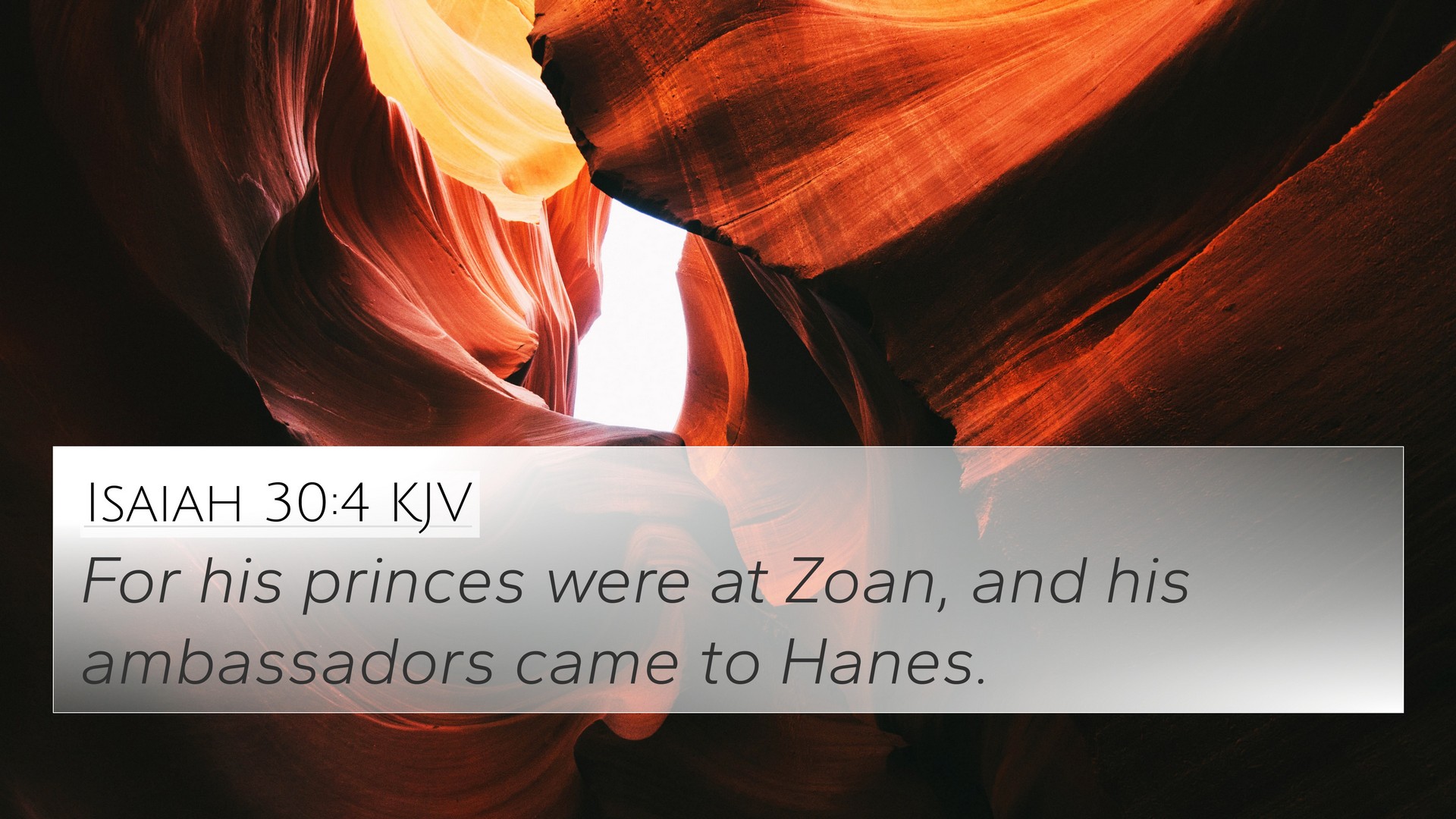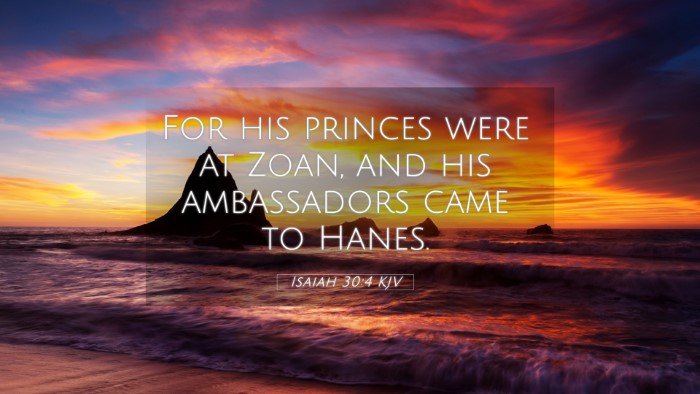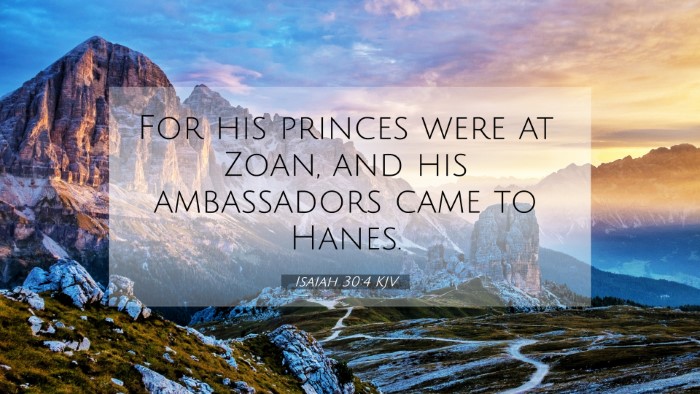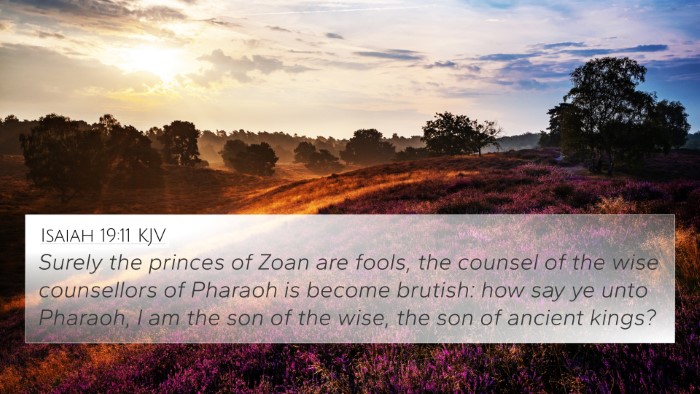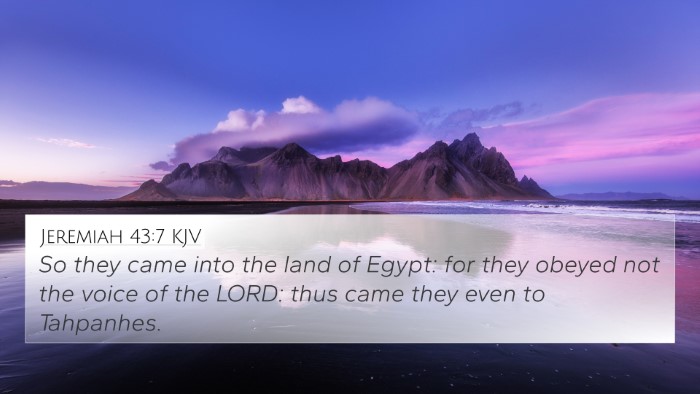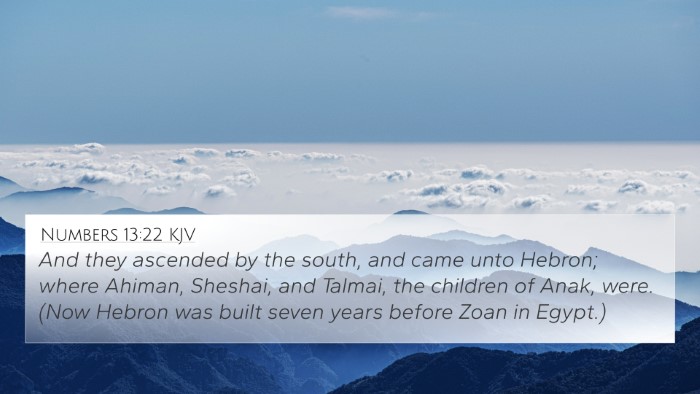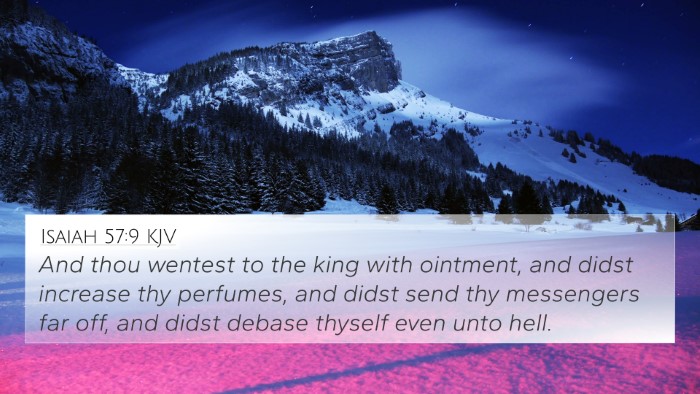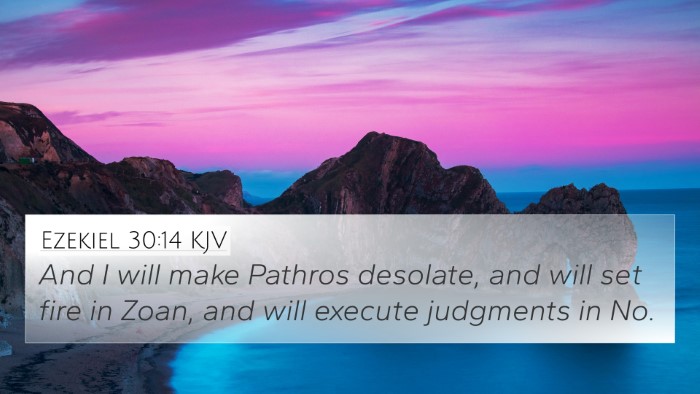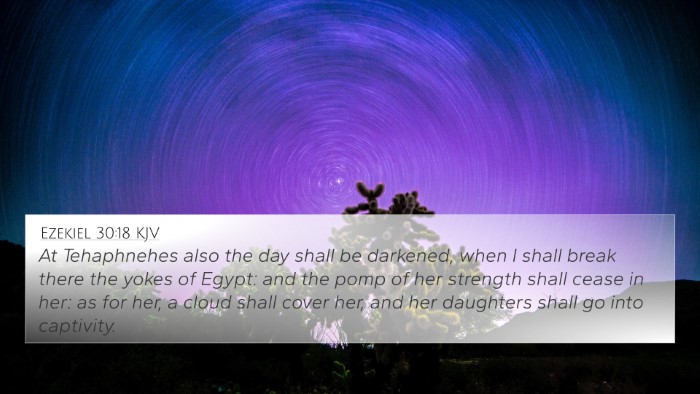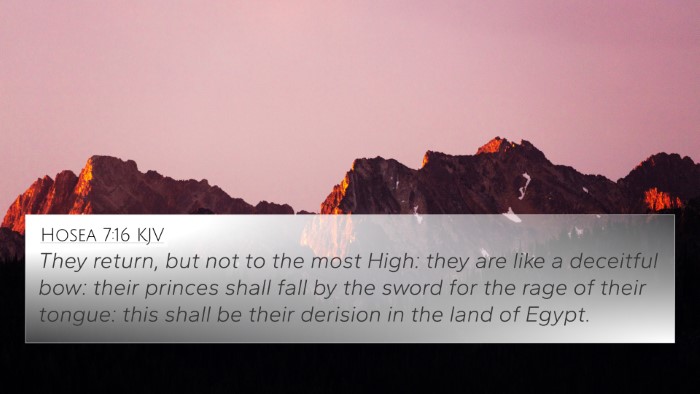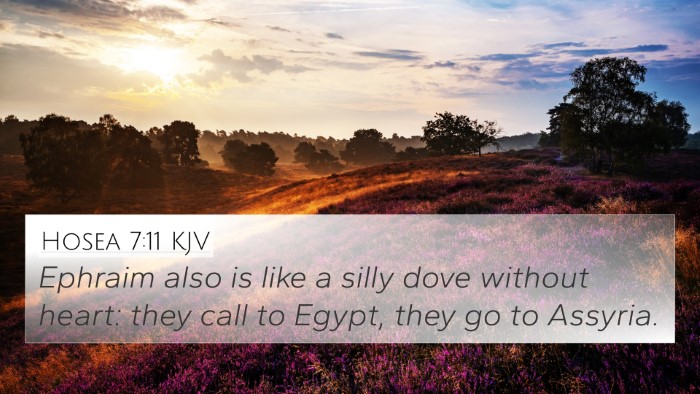Understanding Isaiah 30:4
Verse Reference: Isaiah 30:4
"For his princes were at Zoan, and his ambassadors came to Hanes."
Overview of the Verse
This verse from Isaiah emphasizes the political maneuvers of Israel in seeking alliances with Egypt through their officials and emissaries. The mention of Zoan and Hanes indicates specific locations tied to the diplomatic efforts of the leaders during a time of uncertainty.
Commentary Insights
-
Matthew Henry:
Henry points out that the reliance on Egypt is indicative of a lack of trust in God's protection. He notes that the leaders' desperation leads them to seek the support of a nation that had historically oppressed them. Thus, their actions reflect a faith crisis among the leadership of Israel.
-
Albert Barnes:
Barnes comments on the geographical reference to Zoan, a city that symbolizes the oppression and bondage of Israel. His elucidation indicates that the choice to send ambassadors to another nation reflects a misguided strategy, showing a preference for human alliances over divine guidance.
-
Adam Clarke:
Clarke highlights the importance of understanding the historical context. He articulates that these regions were known centers at the time, and sending ambassadors illustrates a significant diplomatic effort that ultimately failed to secure true assistance, instead leading to further dependence on those who do not have the power to save.
Thematic Connections and Cross-References
The verse can be understood more deeply when considering its connections to other scriptures that reflect similar themes of reliance and divine support:
- Isaiah 31:1: This verse warns against those who go down to Egypt for help and rely on horsemen instead of looking to the Holy One of Israel.
- Jeremiah 17:5: This verse states that cursed is the man who trusts in man, highlighting the futility of relying on human alliances over divine support.
- Psalms 20:7: This verse contrasts trust in chariots and horses with trust in the name of the Lord our God, emphasizing the true source of strength.
- Exodus 14:13-14: In this passage, Moses reassures the Israelites during the pursuit by Egyptians, reflecting God's ability to deliver His people without any reliance on foreign aid.
- Isaiah 12:2: Here, a declaration of the Lord as one’s strength and song emphasizes faith in God versus human partnerships.
- Isaiah 36:6: Depicts the futility of trusting in Egypt as a "broken reed," mirroring a common theme of misplaced trust that runs through Isaiah.
- 2 Kings 17:4: Discusses the alliances made with Egypt by Israel leading to their eventual downfall, serving as a cautionary tale against seeking human intervention.
- Hosea 12:1: Discusses how Israel feeds on the wind and pursues the east wind; it reflects the trend of seeking alliances amidst political turmoil.
- Isaiah 10:20-21: Speaks of the remnant returning to God, contrasting their path with those who sought help from foreigners.
- Micah 5:10-12: In that day, declaring that God will cut off reliance on horses and chariots suggests the futility of human alliances.
Conclusion
Isaiah 30:4 provides a critical insight into the theme of reliance on God versus human institutions. Through the analysis of various commentaries and cross-references, one can see that the scripture is timeless in its message of placing trust in divine rather than human power. Such reflections underscore the complexities of faith and the need to recognize true sources of strength.
Tools for Further Study
- Bible Concordance: A valuable tool for locating related scriptures.
- Bible Cross-Reference Guide: Helps trace thematic links between verses.
- Cross-Reference Bible Study: Methods for systematically studying connections between scriptures.
- Bible Reference Resources: Comprehensive materials that aid in understanding Scripture themes.
- Identifying Connections: Tools for finding correlations between Old and New Testament scriptures.
